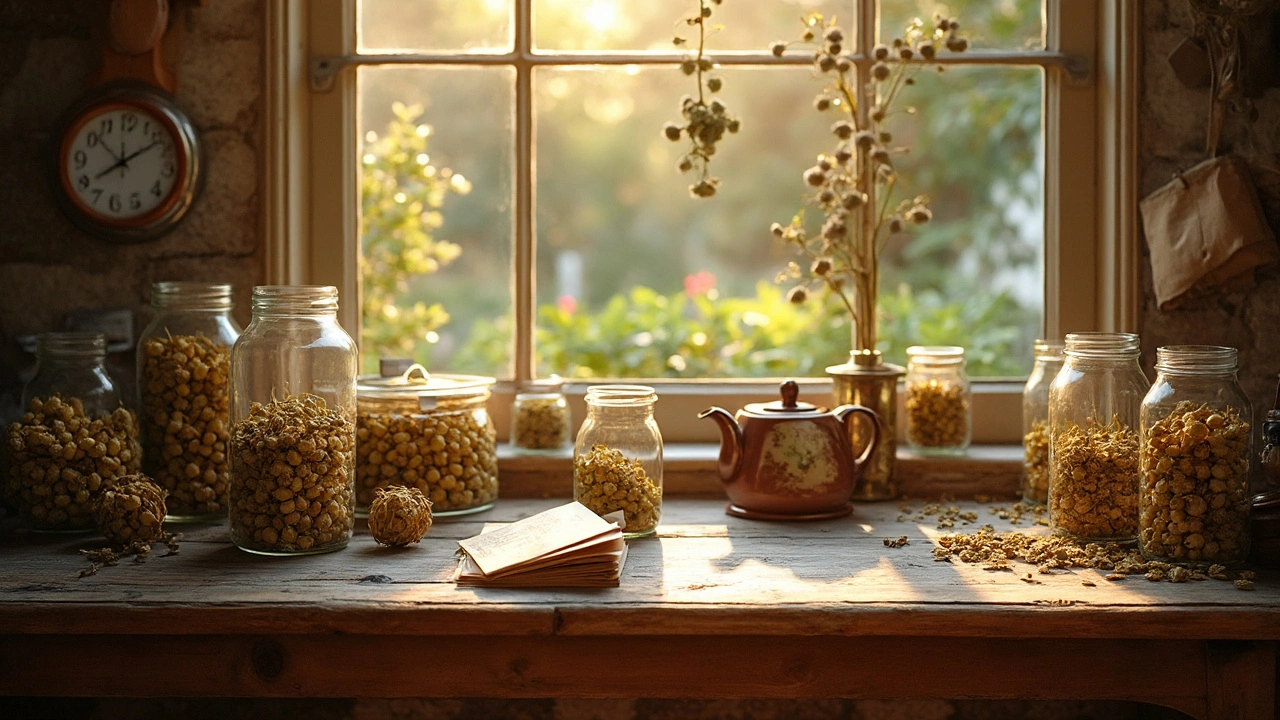Hops: Uses, Benefits, Risks, and How to Use It Safely
Hops are the flowers of the Humulus lupulus plant. Most people know hops as the bittering agent in beer, but they also show up in supplements and teas for sleep and relaxation. Hops contain bitter resins and aromatic oils plus plant compounds that can act mildly like a sedative. That makes them useful for short-term sleep problems, tension, and digestive upset linked to stress.
Research suggests hops work best when combined with other calming herbs such as valerian or lemon balm. In real-world use people report falling asleep faster and feeling less restless after taking a hops-valerian mix. Hops also have mild antimicrobial effects and add flavor to herbal formulas. They are not a quick cure for chronic insomnia, but they can be a useful tool for occasional sleepless nights.
How you take hops changes how strong it feels. Common forms include tea made from dried flowers, capsules with powdered extract, liquid tinctures, and standardized extracts in drops. A typical cup of hops tea uses 1 to 2 teaspoons of dried flowers steeped 10 minutes. Capsules often contain 300 to 500 mg of hop extract per dose. Tinctures vary widely; follow the label and start low. If you want the beer effect, remember alcohol can make sleepiness stronger and interact with medicines.
Side effects are usually mild. The most common is drowsiness, followed by stomach upset or allergic skin reactions in sensitive people. Because hops can act like a mild sedative and may influence hormones, avoid high doses if you are pregnant, breastfeeding, or have hormone-sensitive conditions such as breast cancer. Also stop using hops at least two weeks before surgery because of possible interaction with anesthesia and sedatives.
How to use hops safely
Start with a low dose and test how your body reacts. If making tea, drink it 30 to 60 minutes before bedtime. For capsules or extracts follow the manufacturer’s directions and avoid combining hops with prescription sleep drugs, benzodiazepines, or heavy alcohol. If you plan to combine hops with valerian or other herbs, research or ask a pharmacist about recommended dosages. Keep a short diary for three nights to track sleep changes and any side effects.
Who should avoid hops and known interactions
Do not use hops if you are pregnant or breastfeeding. People with hormone-sensitive cancers or those taking hormone therapy should consult a doctor first. Hops can increase drowsiness when mixed with alcohol, opioids, benzodiazepines, antihistamines, or other sedatives. If you take medications that affect liver enzymes, ask your provider about possible interactions with herbal extracts.
Choose products from reputable brands that list ingredients and batch testing. Look for standardized extracts if you need consistent dosing. Store dried hops and extracts in a cool, dark place in sealed containers to preserve aroma and potency. Toss old products after their expiration date.
If you want to try hops for sleep or mild anxiety, talk to your doctor or pharmacist, especially if you take other drugs. A low-dose trial can show whether hops help without problems.






